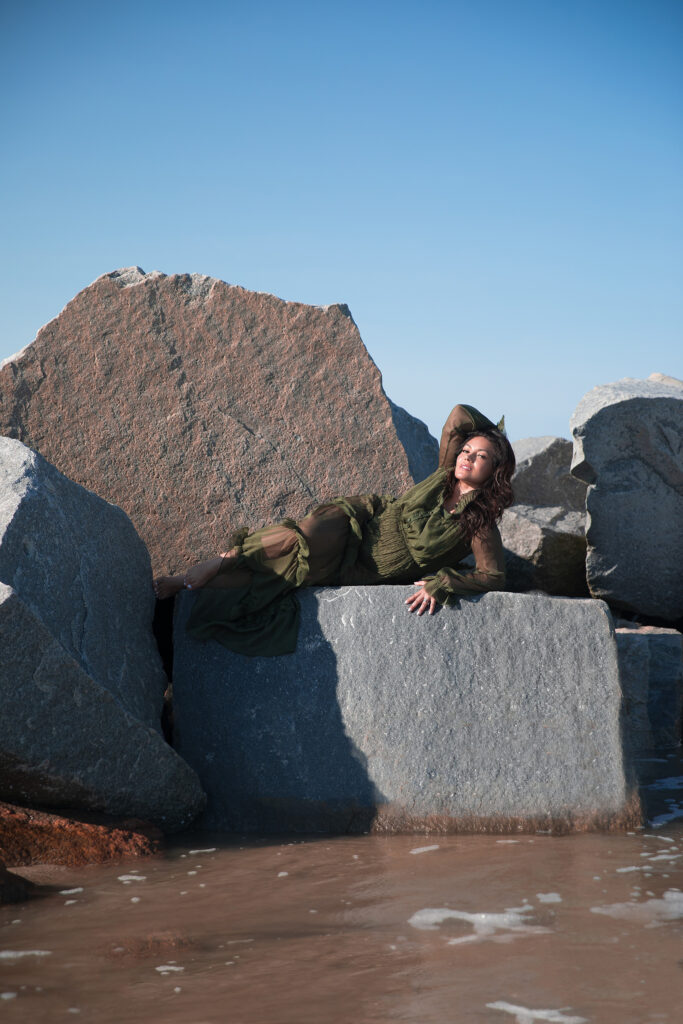“…in the enormous title role, soprano Ailyn Pérez was a force of nature.
[…]
Rusalka is a challenging role under any circumstances; here, Pérez performed most of it barefoot, often wading in the onstage pond, while wearing nothing more than a simple white shift.
The popularity of “The Song to the Moon” suggests the entire role is wispy and forlorn, but, in fact, the title goes through an incredible range of moods and emotions vocally as well as dramatically. Pérez was a riveting presence from beginning to end, making use of a rich, chocolatey middle range she’s acquired in recent years to complement her upper register.
She was just as effective in her character’s intense, neo-Wagnerian scena in Act 2 as she was in more lyrical scenes, bringing emotional vulnerability and believability to them all, and was in superb form throughout the heart-breaking simplicity of the opera’s extended finale. In short, as fine a performance as you’ll see and hear anywhere.”
“Highlights include soprano Ailyn Pérez in the title role with a riveting performance, sung beautifully throughout, which captures both the otherworldly nature of her character, as well as the very human-female jeopardy explored in this production.”
“Pérez role debut was a resounding success as she gave a tour de force performance as Rusalka. Clearly at the peak of her musical prowess, Pérez completely disappeared into the role, presented a fully realized characterization of a girl that was determined to be an adult and to be loved no matter the cost.”
Parterre
“And in “Rusalka,” Pérez has found in the title role a part that rewards the richness of her sound. David Pountney’s elegant production, which treated the “Little Mermaid”-like story as the metaphor it always has been, has her rarely leaving the stage, crossing paths with the likes of Raehann Bryce-Davis’s playfully vicious Jezibaba and Mary Elizabeth Williams’s ferociously alluring foreign princess. At times Pérez was athletic, singing the “Song to the Moon” while climbing suspended chairs as if they were a jungle gym, projecting her longing as she leaned back, holding onto the furniture by a single hand. Through it all, her phrasing remained shapely, controlled and actorly, erupting in agony or passion but just as quickly retreating to a quiet, floating soprano, while in the pit Lidiya Yankovskaya teased out the Romantic elements of Dvorak’s score.”
New York Times
“Conducted with both grace and romantic fervor by Lidiya Yankovskaya, the production marked Ailyn Pérez’s commanding debut in the title role. Pérez, onstage for nearly the entire opera, sang and acted heroically, her darkly beautiful soprano voice and refulgent high notes bringing the character vividly to life.The production also called for Pérez to perform virtual acrobatics on a giant sculpture constructed of chairs while singing the opera’s signature aria, the ‘Song to the Moon’…”
San Francisco Classical Voice
“Soprano Ailyn Pérez made a triumphant return to Santa Fe in the title role. Her physical beauty and ability to move expressively suited the character, and her voice has ripened into a mature and intense instrument. Rusalka’s Act I “Song to the Moon”—the opera’s best-known excerpt—resonated poignantly, with true intonation and smooth tone quality up to a sparkling high B-flat. The companion aria in Act III featured silken vibrato singing.”
The Classical Review
“Amid sometimes extraordinary physical demands, including singing the famous “Song to the Moon” while climbing and writhing on that precarious tower of chairs, Ailyn Pérez is a deeply sympathetic Rusalka. Her soprano seems to command limitless resources of power and color.”
Dallas News
“The singers brought out the complexity of the characters beyond their fairy-tale identities. Ailyn Pérez was a passionate Rusalka, especially forceful in Act 3, as she asks the Prince why he betrayed her.”
The Wall Street Journal
“I was thrilled that SFO has engaged the equally marvelous Ailyn Perez in the title role. Vocally and dramatically, her performance was one of the highlights… I give Ailyn Perez full marks for stretching out horizontally on the chairs in midair!”
Ludwig van Toronto
